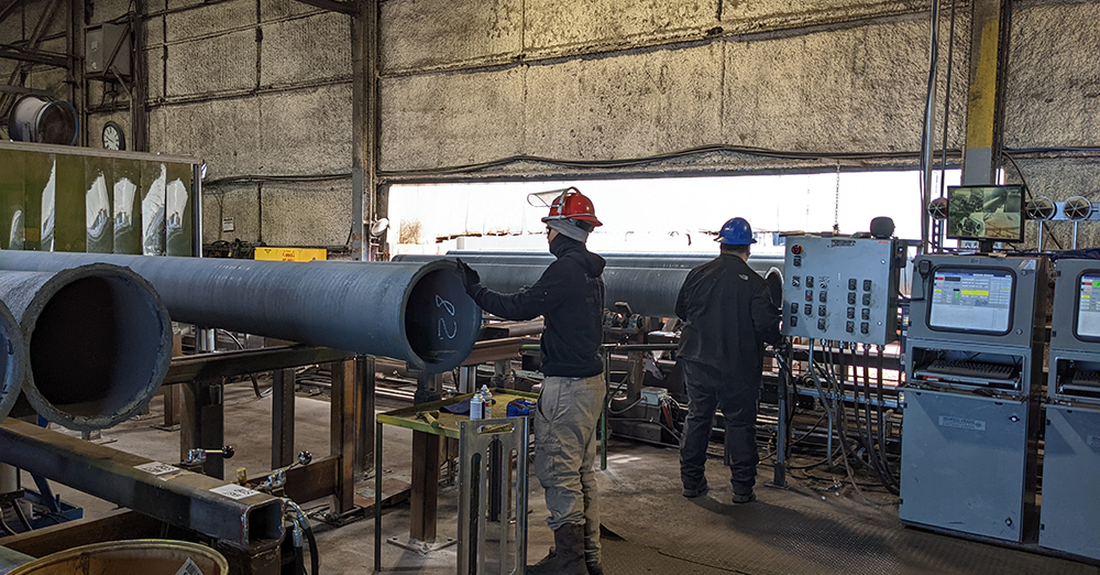
Utility pole corrosion in acidic soil is a pressing issue many utility companies face. Corrosion can severely weaken poles, leading to safety hazards and increased maintenance costs. Utility poles can corrode over time due to various factors, including weather, manufacturing, and soil conditions. Today, McWane Poles will walk you through effective strategies to prevent utility pole corrosion in acidic soil, ensuring durability and safety.
Applying Barrier Coatings
Barrier coatings are an effective and efficient way to minimize corrosion. These coatings form a protective layer around the utility poles, preventing direct contact with acidic soil.
There are several types of barrier coatings, including epoxy, polyurethane, and enamel. Each coating offers distinct differences in terms of durability and application method. McWane Poles applies Permasafe, manufactured by Induron, to the embod portion of the pole to protect against acidic soilds. You can learn more Permasafe at McWane Poles.
Cathodic Protection
Cathodic protection is an electrochemical process that prevents corrosion. It involves applying a small electrical current to the utility pole, which counteracts the natural corrosive process.
This method can be effective for metallic poles. Installing sacrificial anodes or using impressed current systems can significantly extend the lifespan of utility poles, but require additional maintenance over the life of the pole to be effective. Utilities must monitor the treated power poles to ensure cathodic protection systems remain effective over time.
Selecting Corrosion-Resistant Materials
Choosing the right materials for utility poles is crucial in combating corrosion. Some materials are naturally more resistant to acidic soil conditions. For example, ductile iron poles and galvanized steel have low corrosion rates.
Evaluating soil conditions and material compatibility during the planning phase can prevent future corrosion issues. Investing in corrosion-resistant materials reduces maintenance costs and increases pole longevity. Learn more about corrosion-resistant power pole alternatives at McWane Poles.
Regular Treatment and Maintenance
Regular treatment and maintenance play vital roles in preventing corrosion. Conducting periodic inspections helps identify early signs of corrosion, allowing for timely intervention. Applying anti-corrosion treatments, such as moisture inhibitors or protective sprays, can enhance resistance. Establishing a maintenance schedule ensures all preventive measures remain effective. Consistent upkeep prolongs utility poles’ lifespans and minimizes the risk of unexpected failures.
Preventing utility pole corrosion in acidic soil requires a proactive approach. By adopting these methods to prevent corrosion in acidic soil, utility companies can ensure the longevity and safety of their poles.
Safeguarding utility poles against corrosion in acidic soil is essential for maintaining infrastructure integrity. These proactive measures are pivotal. With these techniques, utility companies can significantly extend the lifespan of their poles and ensure reliable service delivery. Assess your current prevention strategies and consider incorporating power pole alternatives from McWane Poles today.

